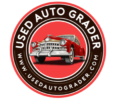Are you in the market for a used Jeep car? If so, you’re likely looking for a reliable, rugged vehicle that can take you anywhere. But, before you make your purchase, there are a few things you should be aware of.
First, it’s important to research the model you’re interested in. Different Jeep models have different features and capabilities, so make sure you’re getting the right one for your needs. Also, check out reviews from other Jeep owners to get an idea of how the model performs.
Second, you should have the vehicle inspected by a qualified mechanic. This will help you identify any potential problems that may not be visible to the naked eye. It’s also a good idea to ask for a Carfax report to make sure the vehicle hasn’t been in any major accidents.
Third, consider the cost of ownership. Jeeps can be expensive to maintain, so make sure you’re prepared to cover the cost of regular maintenance and repairs.
Finally, be aware of the age of the vehicle. Older Jeeps may have more wear and tear, so make sure you’re getting a good deal for your money.
By following these tips, you can ensure that you’re getting a reliable, safe vehicle that will last you for years to come. Happy shopping!
Buying a used car can be a great way to save money, but it can also be a risky endeavor. Before you make the decision to buy a used car, it’s important to consider the pros and cons.
Pros
The biggest advantage of buying a used car is the cost savings. Used cars are typically much cheaper than new cars, and they can be a great way to get a reliable vehicle without breaking the bank. Additionally, used cars often have lower insurance premiums and registration fees.
Another benefit of buying a used car is that you can often find a vehicle with features that may not be available on a new car. For example, you may be able to find a used car with a sunroof or a manual transmission, which may not be available on a new car.
Finally, used cars are often easier to finance than new cars. Banks and other lenders are often more willing to finance used cars than new cars, which can make it easier to get the financing you need.
Cons
The biggest downside of buying a used car is the risk of buying a lemon. Used cars can often have hidden problems that may not be apparent until after you’ve purchased the car. Additionally, you may not have the same warranty protection that you would have with a new car.
Another potential issue with buying a used car is that it may not have the latest safety features. Newer cars often have advanced safety features such as lane departure warning systems and blind spot monitoring, which may not be available on older cars.
Finally, it can be difficult to find a reliable used car. It can take a lot of time and effort to find a used car that is in good condition and has been well-maintained.
Conclusion
Buying a used car can be a great way to save money, but it’s important to consider the pros and cons before making a decision. Used cars can often be cheaper than new cars, but they may not have the same safety features or warranty protection. Additionally, it can be difficult to find a reliable used car. If you do your research and take your time, you can find a great used car that will serve you well for years to come.
